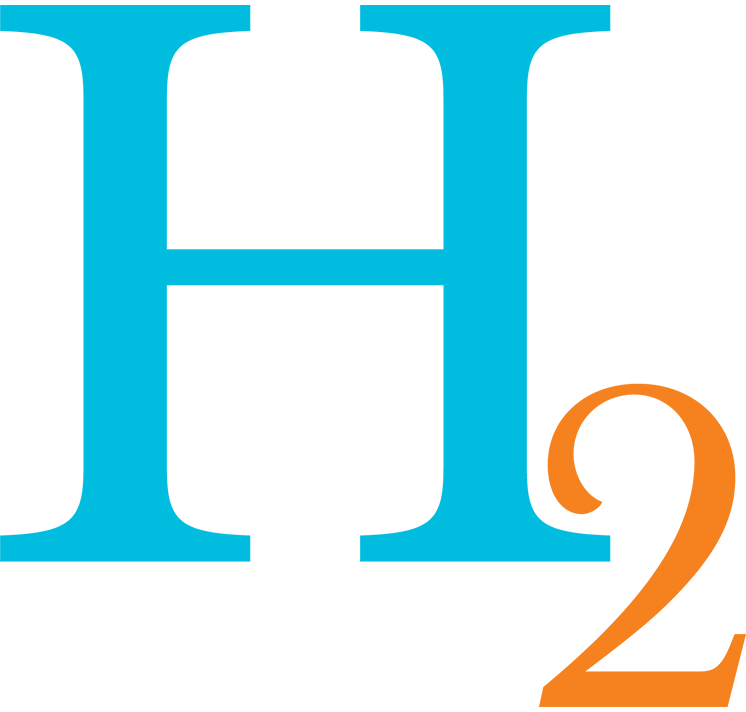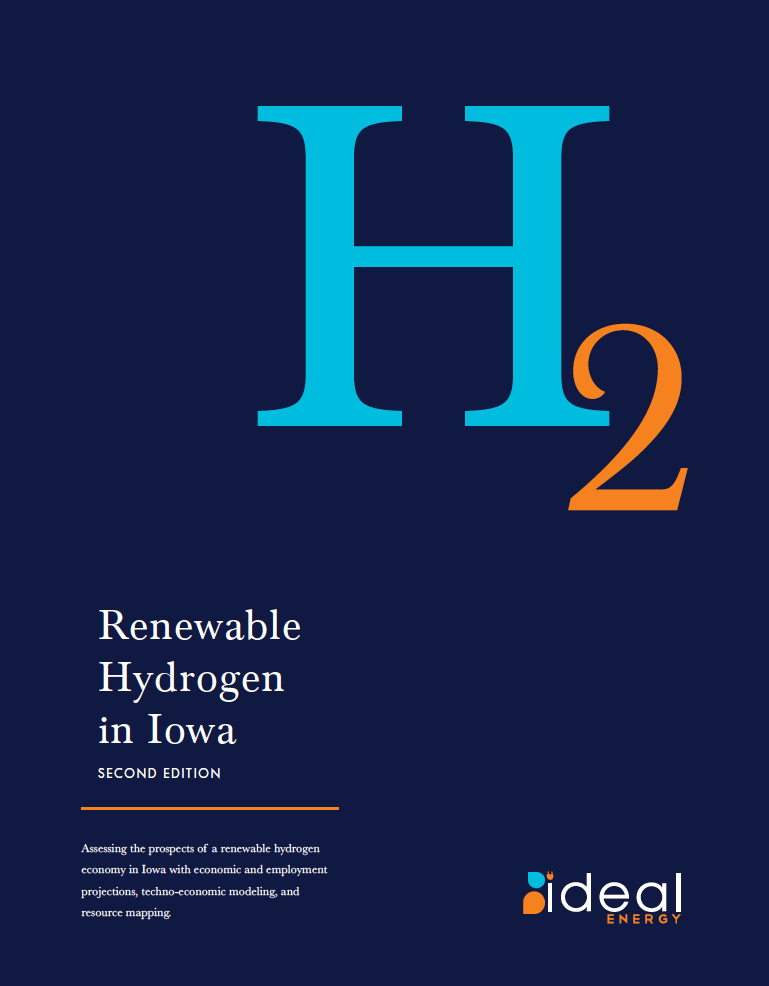WHITE PAPER
Assessing the prospects of a renewable hydrogen economy in Iowa with economic and employment projections, techno-economic modeling, and resource mapping.

Renewable hydrogen and green ammonia (which is made from renewable hydrogen) are ideal chemical energy carriers. Renewable hydrogen is clean, versatile, and can expand the reach of renewables like wind and solar. Hydrogen and hydrogen products are already in demand and have many potential future uses.
With funding support from the Iowa Economic Development Authority we undertook an in-depth look at renewable hydrogen in Iowa.
In this report, we studied the renewable hydrogen opportunity as well as potential obstacles. We used financial models to see if a renewable hydrogen plant could be viable in Iowa today, assessed the economic and employment growth renewable hydrogen could bring to Iowa, and inventoried Iowa’s existing renewable energy assets and hydrogen markets. Finally, we made recommendations that Iowa policymakers and stakeholders could implement to guide the growth of the renewable hydrogen industry.
IN THIS WHITE PAPER WE COVER:
- How renewable hydrogen technology works
- Economic and employment projections for Iowa with a renewable hydrogen economy
- A techno-economic analysis, including levelized cost of hydrogen (LCOH) projections, estimated project financials, and a sensitivity analysis
- Hydrogen production potential and hydrogen demand potential in Iowa
- Iowa’s current wind energy and solar energy assets
- A discussion of current and future markets for renewable hydrogen and green ammonia
- The DOE H2Hub program – a once-in-a-generation opportunity to kickstart the renewable hydrogen economy

